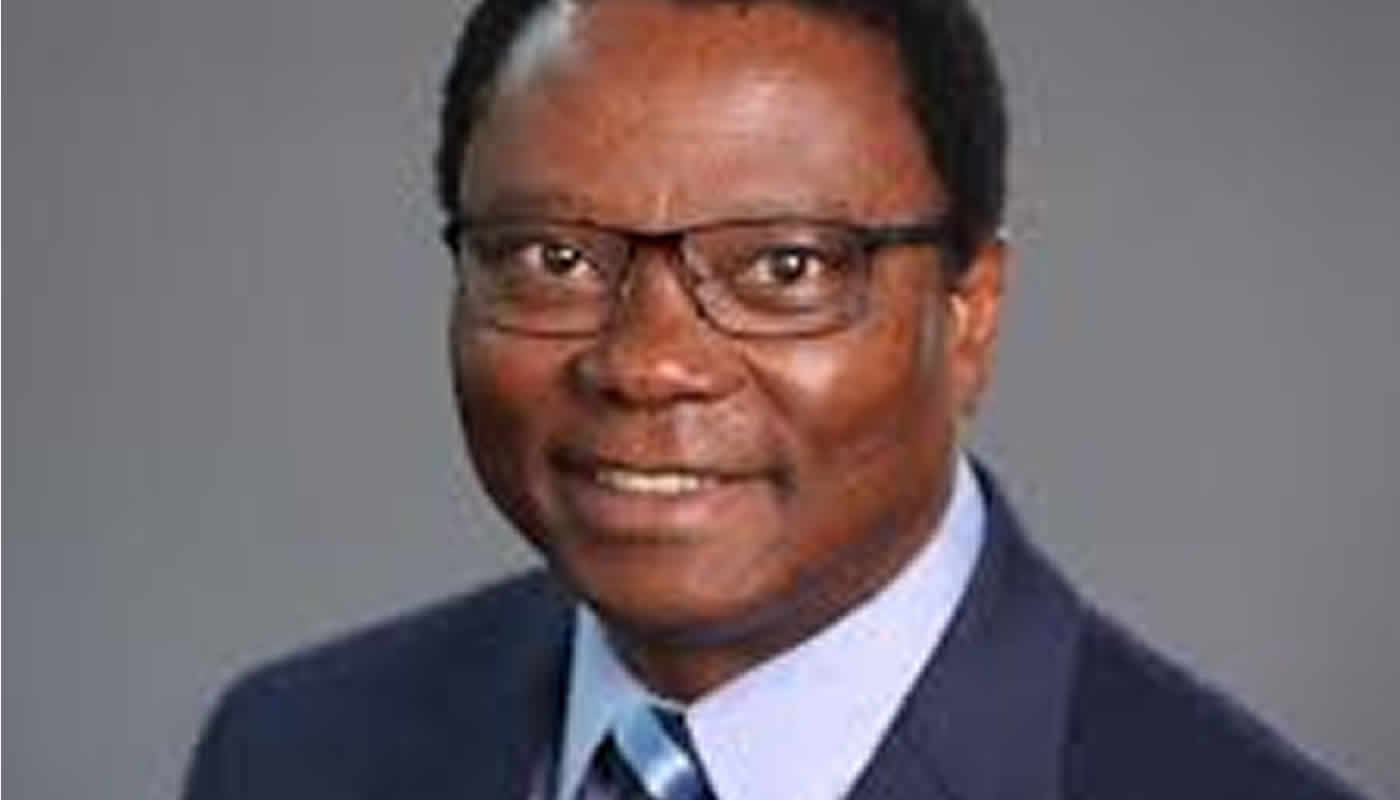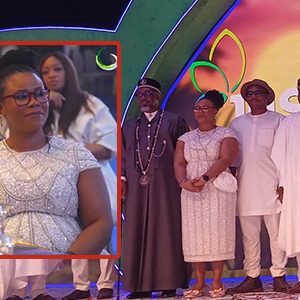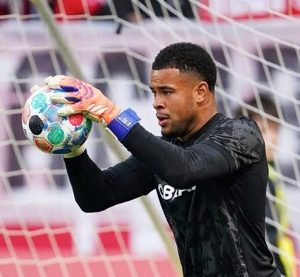Chair of the Department of Biomedical Engineering at the University of Texas Southwestern Medical Centre, United States, Professor Samuel Achilefu, speaks with Biodun Busari about his early life, career journey, and pioneering inventions
What were your biggest challenges while growing up?
One thing about me is that I would never trade my childhood in Nigeria for anything. That experience has truly shaped who I am today.

I was born in the former Benue-Plateau State, a wonderful place where people from different cultures lived together peacefully. My father worked in a hospital. Life was exciting until the Civil War began. We had to pack our belongings and relocate to southern Nigeria, where I faced several challenges.
Suddenly, I found myself in an unfamiliar place. But that experience also forced me to become creative. We made toys out of sticks, went into the bushes to gather firewood, and turned daily survival into adventure. As a child, you don’t see hardships as obstacles; you see them as opportunities. I didn’t know any better.
Of course, there were real challenges: no clean water, no electricity, and poor roads. But I embraced them. Those experiences built resilience in me.
Which part of the South did your family move to when the war broke out?
I consider myself a quintessential Nigerian. Like I said earlier, I was born in Benue-Plateau (now Benue and Plateau States). My parents were Igbo, but they lived and worked in the North. I attended primary school there.
When the war started in 1967, we relocated to Abia State, which is where my parents are originally from, so that became “home.” After the war, we moved back to Minna and Bida in Niger State, and later to Sokoto. So my childhood was a blend of the Southeast and the North.
As a child forced to move because of the war, how did you process it mentally?
It’s interesting you ask because I once wrote about this in an online piece titled A Collider Story. The first question that kept ringing in my mind was “Why?” Why couldn’t adults resolve their differences peacefully?
My father stayed back in the North for some time to continue treating his patients, while my mother took us to the South. So our family was split. Later, when the war intensified, my father was conscripted by the Biafran army to work as a doctor at frontline hospitals. We didn’t see him again for a long time.
As a child, I couldn’t understand it. It was traumatic. Even today, when I hear a low-flying aeroplane, I feel transported back to the 1960s. That sound still triggers a deep fear in me; the sense that something terrible is about to happen.
War is not glorious. It’s not heroic. It destroys lives and scars people for generations. I saw people die on the streets. Someone you greeted in the morning could be gone by evening due to a bomb blast.
That’s why I will never support war. I have lived through it. It is not worth it. May we never witness such again.
Your father worked in a hospital. Did that influence your decision to pursue a medical career?
My father was a surgical nurse and eventually became a leader in his field. He even taught surgeries back then. Ironically, while he may have intended to inspire me to become a doctor, he actually pushed me away from medicine.
As a child, I hated the sight of blood. I remember accompanying him to villages where he performed surgeries on people with various ailments. We would operate at night, often with minimal anaesthesia, and clean the patients afterwards. By the next day, those who had been in severe pain would be smiling and thanking him. But for me, the last thing I wanted was anything to do with medicine or blood.
So what eventually led you back to medicine?
Looking back, I credit my father, though he never forced me into medicine. His only advice to his children was, “Do the best you can.” Determined to avoid medicine, I chose statistics and mathematics as my undergraduate courses. But life is full of surprises. Today, I’m in the operating room with patients, and the sight of blood no longer bothers me. I often wish he were alive to see that. He would have just smiled.
How did your background in statistics and mathematics contribute to your medical career?
I was among the first students in my secondary school to earn a Grade One with distinction in the West African School Certificate exams. I had originally planned to pursue A-levels and then study abroad, but the strength of my grades made me go straight to university. I enrolled at the University of Science and Technology, Port Harcourt, to study statistics and mathematics. The university’s strong interdisciplinary programme exposed me to electrostatics, physics, engineering, and chemistry, which eventually led me to switch to chemistry with an emphasis on physics and engineering.
I later pursued a master’s degree at the University of Ibadan, and soon after, I received a postdoctoral scholarship to study material science in France, as one of five Nigerians selected. Nanotechnology was just emerging then. After that, I was awarded a fellowship at Oxford University, where my interest shifted toward medicine.
I worked on developing oxygen delivery systems to help patients overcome blood loss. After Oxford, I moved to the United States, where my career in medical innovation truly began.
Your cancer-vision goggles are one of your most widely recognised inventions. What inspired them?
Yes, that’s what most people know me for. I’ve invented several technologies, and I’m also a member of the U.S. National Academies of Sciences, Engineering, and Medicine, one of the highest honours. But the cancer-vision goggles were my original idea.
At Washington University in St. Louis, where I was leading a major biophotonics research group, a Chinese surgical fellow approached me and said, “We have many patients in Shanghai, but during surgeries, we can’t even see the tumours properly.” That simple conversation sparked an idea: What if we could create a tool that allows surgeons to see cancer in real time? That was the beginning of the cancer-vision goggles. Many people contributed to the process, as is common in science, but I’m the primary inventor of the technology.
How do the goggles work?
Before surgery, we inject a small material into the patient. It travels through the body and attaches specifically to cancer cells. The goggles contain a special near-infrared light source that penetrates the body safely. When the surgeon wears the goggles, this light makes the cancer cells glow, and a built-in camera captures the signals in real time, just like watching a video.
As the surgeon operates, the cancerous areas light up clearly. This makes it easy to remove all the cancer tissue and ensures nothing is left behind. Previously, surgeons were essentially operating blind, sometimes leaving residual cancer unknowingly, which could lead to recurrence and death. Now, they can see exactly what needs to be removed.
The beauty of this technology is its simplicity, affordability, and applicability anywhere in the world. It gives surgeons confidence and patients peace of mind.
How many inventions do you have altogether, and what drives them?
I have over 70 U.S.-issued patents and more than 100 global patents. My driving force is curiosity. I’m constantly asking, “Why are we still doing things this way? What can we do differently? Why can’t we explore better alternatives?”
Since my research is primarily focused on medicine, my key question has always been: “How can I make life better for patients?” Why can’t we cure cancer? Why are we still relying on the same old drug treatments? Why are people still battling hypertension? What if we could stop neurological disorders before they even happen, perhaps by wearing something on the wrist?
These questions fuel my creativity. Curiosity is what keeps me going every day, with the belief that we can always do better.
Many Nigerians excel abroad, yet struggle to thrive back home. What do you think is the real problem?
When I was about to leave the University of Ibadan for France, my mentor advised me to stay in Nigeria because the country needed people like me. I left anyway. Years later, when I completed my PhD and other programmes, I wrote to him saying I wanted to return home. His response shocked me. He said, “There will always be a place for you. But if you were my son, I would ask why you are coming back? There is nothing here for someone with your knowledge.”
It felt like rejection. Around that time, I received a prestigious fellowship from Oxford University, which helped me continue my career abroad. I also had a colleague who returned to Nigeria after his studies in France. He later told me that it was the worst decision of his life; his research died immediately. The only way he could stay productive was by leaving the country for a few months every year.
Nigeria is rich in human and natural resources. Our people are brilliant. The problem isn’t lack of talent, it’s lack of infrastructure and sustained support for innovation. We talk about innovation, but often as political showmanship rather than long-term investment.
People can’t think about inventing solutions when they’re struggling to put food on the table. Creativity only thrives after basic needs are met. What we need is a sustainable national innovation programme, one that is not dependent on which government is in power. It should be a partnership between the government, the private sector, and Nigeria’s billionaires to build Institutes of Advanced Innovation. These would be safe spaces where brilliant minds can thrive without fear of being shut down. That is how nations are built.
Given these challenges, should young Nigerians focus on passion or financial stability?
Motivation must be realistic. If I tell you to follow your passion and it doesn’t put food on your table, what’s the point? And if I tell you to chase money but it leaves you unhappy, what’s the point either?
In Western countries, both passion and wealth creation are valued. Nigerian youths often chase money first because when they pursue their passion, no one employs or supports them. When your idea isn’t funded, survival takes priority.
My advice is this: let passion be your foundation, but pair it with practicality. Passion brings out your best work, but find a way to make it financially sustainable.
One thing I hope to introduce in Nigeria is a system where young innovators can turn their ideas into patents and intellectual property. That way, you can follow your passion and earn revenue from it without depending on employment from others. So yes, follow your passion, but make sure it can feed you.
Stay ahead with the latest updates!
Join The Podium Media on WhatsApp for real-time news alerts, breaking stories, and exclusive content delivered straight to your phone. Don’t miss a headline — subscribe now!
Chat with Us on WhatsApp








